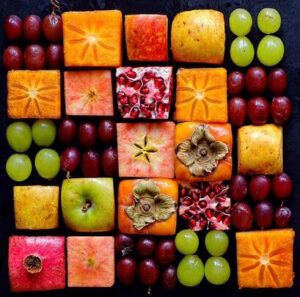
by Sarah Phillips
What is agriculture sustainability?
Sustainability has the quality of not being harmful to the environment or depleting natural resources, and thereby supporting long-term ecological balance. Sustainable agriculture is farming in such a way to protect the environment, aid and expand natural resources and to make the best use of nonrenewable resources. The current greatest threat to agricultural sustainability is erosion, water pollution, and air quality.
Why is it important?
Sustainable farming practices can help reduce air, water, and soil pollution and protect the biodiversity that sustains human life. Combating climate change through sustainable food production decreases extreme weather, often leading to food insecurity.
The United Nations has completed a global assessment of the state of the planet’s land resources, finding in a report that a quarter of all farmland is highly degraded, with soil erosion, water degradation and biodiversity loss. Another 8% was moderately degraded, while 36% was stable or slightly degraded and 10% was ranked as “improving”. The rest of the Earth’s surface is either bare or covered by inland water bodies.
This means that to meet the world’s future food needs, a major “sustainable intensification” of agricultural productivity on existing farmland will be necessary, according to the FAO said in its report, State of the World’s Land and Water Resources for Food and Agriculture. The impacts of climate change are already constraining rainfed and irrigated production over and above the environmental consequences resulting from decades of unsustainable use, according to the United Nations.
How does that impact what we eat?
Agricultural sustainability also has to do with increasing the nutrition in the food we eat. In a recent Newsweek article: “Vegetables are becoming less nutritious, and scientists now know why”.
Thomas Westerholm, “Vegetables are becoming less nutritious, and scientists now know why”, Newsweek, April 19, 2024, May 2, 2024, 10:49am
A study, conducted by researchers in India, has documented the alarming decline in the nutritional quality of food crops over recent decades, noting significant reductions in essential minerals and nutrients tied to poor soil and growing practices.
There has been a widespread decrease in minerals such as calcium, magnesium, and iron in fruits and vegetables. For example, iron content in vegetables has dropped by as much as 50 percent, and the nutritional density of major commercial fruits like apples and oranges has significantly declined.
Some immediate solutions:
- Switching to sustainable farming practices can help reduce air, water, and soil pollution and protect the biodiversity that sustains human life. Combating climate change through sustainable food production decreases extreme weather, often leading to food insecurity.
- Our diets need to shift towards more plant-based ingredients, rich in vegetables, fruits, whole grains and pulses. Our diets should be limited in red meat, processed meat, salt, added sugar, and high-fat animal products, while fish and seafood should be sourced from sustainably managed stocks. Lentils, black beans or chickpeas, beans and legumes are some of the most sustainable foods around. They don’t require a lot of water to grow, yet they produce an extremely high yield. They’re also high in protein, fiber and gut-healthy prebiotics.
- Shop local for in-season produce to support your community.
- Reduce waste
Long term solutions:
- In order to meet the world’s water needs in 2050, irrigation must become more efficient because most systems perform well below their capacity, the FAO called for new farming practices such as integrated irrigation and fish-farm systems, as well as overall investment in agricultural development. The investment deemed necessary until 2050 is $1tn (£642bn) for irrigation water management for developing countries alone, with another $160bn for soil conservation and flood control.
- Reduce plowing; protect soil year-round with cover crops and more complex crop rotations; incorporate deep-rooted plants on and around farms to hold nutrients and water (while also providing habitat for wildlife and pollinators).
photo and styling by Sarah Phillips copyright 2024






